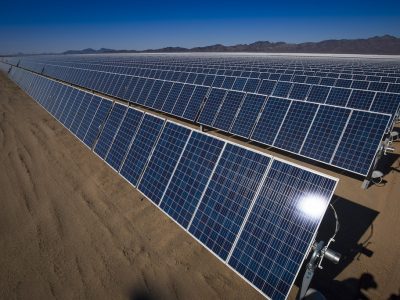Climategate: Did the Russians do it?
The “Climategate” story gets even weirder. New Scientist reports (picking up the story from The Independent) that anonymous sources in the Intergovernmental Panel on Climate Change think the Russian secret service is responsible for hacking into e-mail at the University of East Anglia’s Climate Research Unit. The reported evidence?
[T]he hacked data apparently surfaced on the server of a Russian internet security company based in the Siberian city of Tomsk, where the FSB [the Federal Security Service of the Russian Federation] has an office.
And the supposed motive?
[B]y keeping the Arctic Circumpolar Seas ice-free all year round, climate change will unlock Russia’s enormous and lucrative reserves of fossil fuel. The suggestion is that Russia will welcome this effect of global warming.
Personally, I’m not biting on this one yet. It sounds too much like a throwback to the days of the Cold War and Tom Clancy spy novels, or like a bit of tit-for-tat paranoia from the climate science side. But just because someone’s paranoid doesn’t necessarily mean they’re wrong . . .
Reader Comments
3 Replies to “Climategate: Did the Russians do it?”
Comments are closed.







Intelligence agencies didn’t stop activities with the Cold War, and Russia is firmly in the grip of ex-KGB/FSB operatives led by Putin himself. I find this story easy to believe – FSB has long been rumored to cooperate with third party hackers and there is a clear motive: Russia’s economy is dependent on oil/gas sales to it neighbors, including Europe. Additional motivation might be unlocking resources as mentioned in the article, but Russia also stands to gain significant usable land from climate change.
That said, this story would best be quickly forgotten – there is no way these allegations can be confirmed. In the absence of further evidence, this story will be viewed as a desperate misdirection attempt by those who buy into the whole global warming conspiracy theory.
Or maybe the Illuminati?? I sense a new Tom Hanks movie in the making. . .
“Climategate” started out when there appeared on the Internet a collection of e-mails of a group of climatologists who work in the University of East Anglia in England. These documents reveal that some climatologists of international preeminence have manipulated the data of their investigations and have strongly tried to discredit climatologists who are not convinced that the increasing quantities of carbon dioxide in our atmosphere are the cause of global warming.
It is true that a majority of the scientists who study climatic tendencies in our atmosphere have arrived at the conclusion that the world’s climate is changing, and they have convinced a group of politicians, some of whom are politically powerful, of the truth of their conclusions.
A minority, however, is skeptical. Some believe that recent data that suggest that the average temperature of the atmosphere is going up can be explained by natural variations in solar radiation and that global warming is a temporary phenomenon. Others believe that the historical evidence indicating that the temperature of the atmosphere is going up at a dangerous rate is simply not reliable.
Such lacks of agreement are common in the sciences. They are reduced and eventually eliminated with the accumulation of new evidence and of more refined theories or even by completely new ones. Such debates can persist for a period of decades. Academics often throw invective at one another in these debates. But typically this does not mean much.
But the case of climate change is different. If the evidence indicates that global warming is progressive, is caused principally by our industrial processes, and will probably cause disastrous changes in our atmosphere before the end of the twenty-first century, then we do not have the time to verify precisely if this evidence is reliable. Such a process would be a question of many years of new investigations. And if the alarmist climatologists are right, such a delay would be tragic for all humanity.
The difficulty is that economic and climatologic systems are very complicated. They are not like celestial mechanics, which involves only the interaction of gravity and centrifugal force, and efforts to construct computerized models to describe these complicated systems simply cannot include all the factors that are influential in the evolution of these complicated systems.
All this does not necessarily indicate that the alarmist climatologists are not right. But it really means that if global warming is occurring, we cannot know exactly what will be the average temperature of our atmosphere in the year 2100 and what will be the average sea level of the world’s ocean in that year.
It also means that we cannot be confident that efforts by the industrialized countries to reduce the amount of carbon dioxide in our atmosphere will have a significant influence on the evolution of the world’s climate.
Alas, the reduction of carbon dioxide in our atmosphere would be very costly and would greatly change the lives of all the inhabitants of our planet–with the possibility (perhaps even the probability!) that all these efforts will be completely useless.
Harleigh Kyson Jr.